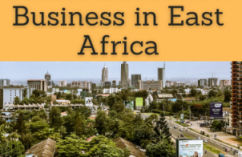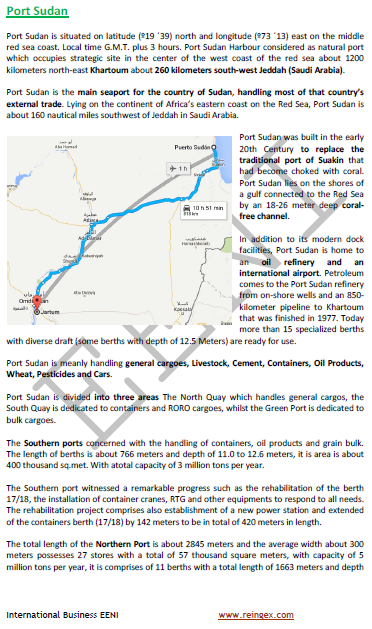Business in Sudan, Khartoum, Mo Ibrahim
Sudanese Economy, Logistics and Foreign Trade. Port Sudan. Osama Abdul Latif
Sudan is the third largest African Country. Sudan is rich in natural resources.
- The Sudanese agricultural sector represents 45% of the total economic growth and 80% of the population is related to this sector
- 90% of the Sudanese exports are agricultural products: cotton, Arabic gum, cattle, meat, oilseeds, sorghum, vegetables, and fruits
- Petroleum extraction is another fundamental pillar of the Sudanese economy
- Port Sudan

- Introduction to the Republic of Sudan (East Africa)
- Sudanese economy
- Economic Profile of the States of Sudan
- International Trade of Sudan
- Transport and Logistics
- Case Study: Sudanese businesspeople and enterprises
- Mohamed Ibrahim
- Osama Abdul Latif
- Sudatel Telecommunications
- Investment in Sudan
- Business Opportunities in:
- Agriculture
- Infrastructure
- Services
- Access to the Sudanese market
- Business Plan for Sudan
Sample: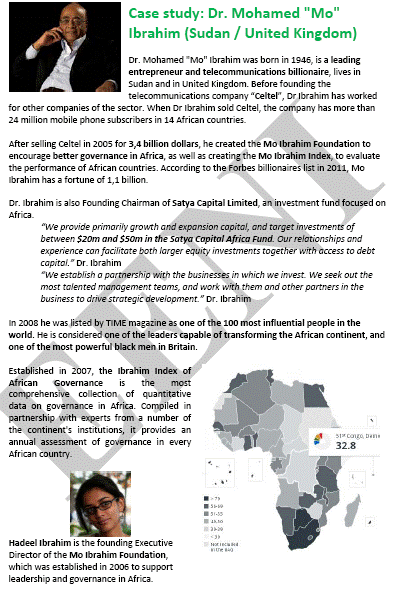

The educational aims of the Subject “Foreign Trade, Logistics and Business in Sudan” are:
- To analyze the Sudanese Economy, Logistics and Global Trade
- To conduct research on business opportunities in Sudan
- To explore the Sudanese trade relations with the student's country
- To learn about Sudanese Trade Agreements
- To examine the profile of the Sudanese businesspeople and companies
- To develop a business plan for the Sudanese market

The Subject “Foreign Trade, Logistics and Business in Sudan” is included within the curriculum of the following academic programs at EENI Global Business School:
Doctorate in African Business.

Master in Business in Africa International Business, Foreign Trade.

Masters adapted to  Sudanese Students.
Sudanese Students.
Languages:  or
or  Soudan
Soudan  Sudão
Sudão  Sudán.
Sudán.
- Subject Credits “Doing Business in Sudan”: 3

- Duration: three weeks
International Trade, Logistics and Business in Sudan.



Sudanese Preferential Access and Trade Agreements:
- Sudan and the East African Economic Area
- Common Market for Eastern and Southern Africa (COMESA)
- COMESA-EAC-SADC Agreement
- African Continental Free Trade Area
- Intergovernmental Authority on Development (IGAD)
- Community of Sahel-Saharan States (CEN-SAD)
- Greater Arab Free Trade Area (GAFTA)
- Islamic Trade Preferential System
- Islamic Centre for Development of Trade
- Arab Bank for Africa (BADEA)
- Nile Basin Initiative
- Conference on the Great Lakes
- Global System of Trade Preferences
- European Union-Sudan
- GSP
- Africa-EU Partnership
- Sudan is not eligible for the AGOA

- World Customs Organization (WCO)
- Kyoto Convention
- BIC (Containers)
- Chicago Convention (ICAO)
- International Maritime Organization
- Sudan is not a member of WTO (in process of accession)

- Afro-Arab Cooperation
- Arab Bank for Africa (BADEA)
- Economic Commission for Western Asia (ESCWA)
- Arab League
- Organization of Islamic Cooperation (OIC)
- Committee for Economic Cooperation
- Islamic Chamber of Commerce
- Islamic Centre for Development of Trade
- Statistical Economic Centre for Islamic Countries
- Summit of South American-Arab Countries
- Asia-Middle East Dialogue

- Economic Commission for Africa
- African Union
- AU Convention on Preventing and Combating Corruption (not signed)
- AUDA-NEPAD
- African Development Bank
- Africa-Asia Partnership
- Africa-Korea Partnership
- Africa-Japan Cooperation
- Africa-India Cooperation

- World Bank
- World Trade Organization (WTO)
- United Nations
- International Monetary Fund
The Republic of the Sudan has a privileged situation in the Red Sea, making the “Sudan Arab” a significant International Trade centre between East Africa, the Middle East, Asia, and Europe through the Suez Canal.
- Borders of Sudan: Egypt, Libya, Ethiopia, Eritrea, Chad, the Central African Republic, and South Sudan.
- Sudan shares Maritime borders with Saudi Arabia (Red Sea)
- Area of Sudan: 1,886,068 km²
- Sudan is the third largest African country (after Algeria and the Democratic Republic of the Congo)
- Sudan has a population of 39 million people
- Arabic and English are the official languages of Sudan
- Sudan is divided into twenty-five states (wilayat) and 133 districts
- Khartoum is the capital of Sudan
- Omdurman is the second largest city in Sudan
- Largest cities: Khartoum, Port Sudan, El-Obeid and Kassala
- Sudan is a federal republic
- Sudan gained the independence from the United Kingdom and Egypt in 1956
- Independence of South Soudan from Sudan in 2011
More information about Sudan (EENI African Business Portal).
Religions in Sudan.
- Islam is the largest religion in Sudan
- Islam is the official religion in Sudan
- About 97% of the Sudanese population is Sunni Muslim
- The Sudanese legal system is based on the English Common law and the Islamic Sharia
- Fiqh (Islamic Jurisprudence): Maliki
- African Traditional Religions
Sudan belongs to East African Economic Area.
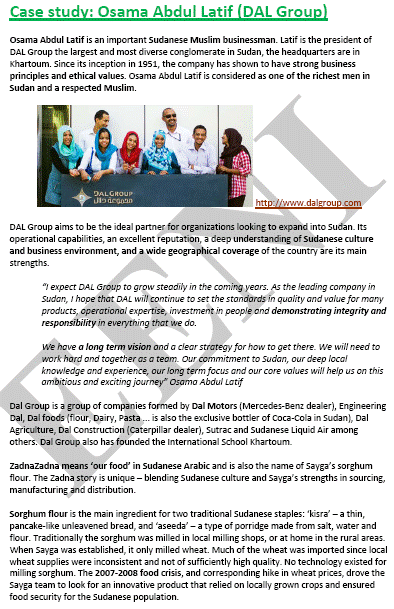
Economy of Sudan:
- Sudan is the only African-Arab nation where agricultural balance is positive
- Sudan is rich in natural resources (agricultural and animal production)
- Currency of Sudan: Sudanese Pound (SDG)
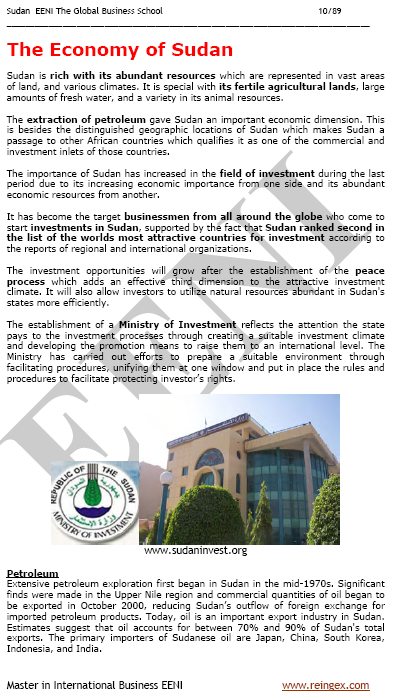

Foreign Trade of Sudan.
- Top Sudanese export products are petroleum, benzene, kerosene, natural gas, gold, sesame, cotton, Arabic gum, sugar, meat, peanuts, leather, molasses, livestock, and animal feed
- Top Sudanese export markets: the Asian markets (79% of total exports). China is the largest importer of the Sudanese products (60% of total exports) followed by Singapore, Japan, and South Korea
- Top Sudanese imports: machinery, foodstuffs, manufactured products, transport, chemicals, and textiles
- Port Sudan is the largest Foreign Trade port
They are significant Foreign Direct Investment opportunities in infrastructure and service sectors: Railway, Roads, internal waterways, Civil Aviation, Air transport, seaports, Shipping, and land transport.
(c) EENI Global Business School (1995-2025)
Top of this page








 WhatsApp
WhatsApp